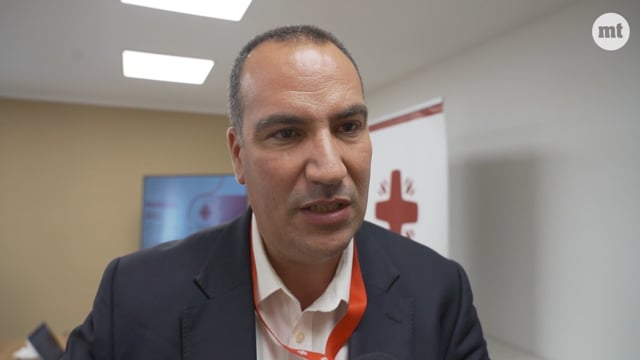[WATCH] Families spending at least €100 more per month on food, new Caritas study shows
Basic food prices jumped by 20% between July 2020 and February 2022, while COVID-19 prevention items have forced families to fork out hundreds more per year • Study done before Ukraine war


Families are spending at least €100 more per month on food, according to a new study by Caritas that develops a minimum budget for a decent living.
The top-up study was done in February, before the Russian invasion of Ukraine, which has in itself caused the price of staple foods to increase further.
The Caritas study shows that basic food prices jumped by 20% between July 2020, when the last exercise was conducted, and February 2022.
The study unveiled today used the same basket of goods drawn up in its 2020 study titled, ‘A Minimum Essential Budget for a Decent Living’.
In 2020, a family of four with two adults and two children would have had to spend around €600 per month or €7,100 a year on basic foodstuffs to live decently.
Less than two years later, that same family would have to spend around €700 per month or almost €8,400 a year in order to buy the exact same products.
A family of one adult and two children would have had to spend €430 per month in 2020 to purchase a decent basket of food. In 2022 the price shot up to €526.

Medicines and healthcare items also increased considerably in price. A family of four with two adults and two children would have had to spend €307 a year on such items at the start of the pandemic. Nowadays, the same family would have to spend €355 to buy the same items.
A family of three, with one adult and two children, spends €22.46 more per year on medicines and healthcare compared to 2020.
The main difference between the 2020 ‘Minimum Essential Budget for a Decent Living’ study and this year’s study is the inclusion of a COVID-19 protection package.
This package includes a disposable mask per day for each person in the household, between six to 12, 100ml bottles of sanitiser per year, and two extra boxes of paracetamol per year.
These additional items cost a family of four over €830 more per year. For a family of three, the package costs €630 over and above its essential medicine and healthcare items.
Elderly couples suffered the largest burden. In 2020, a basic basket of food would have cost an elderly couple €280 per month or €3,370 per year. In 2022, an elderly couple would have to fork out €350 a month or €4,200 per year for the same items.
The burden is strongest in medicines and healthcare. Elderly couples are having to fork out €150 more per year, or 36% more, for the same package of medicines and healthcare items compared to 2020.
When factoring in the prices of COVID-19 prevention items, such as disposable masks, sanitiser and paracetamol, elderly couples have to spend over €400 more, totalling to €980 a year on medicine, healthcare items, and COVID-19 prevention.
Caritas proposals
Caritas made several recommendations in light with these results. It said that no-waste food apps should be developed so that low-income families can be connected to sources of surplus or about-to-expire food which would be going to waste.
It recommended that special hubs should be set up to collect such, especially from supermarkets and restaurants.

One key result from the study is that the Ta’ Qali farmers market was among the cheapest sources of fruit and vegetables compared to chain supermarkets and locality grocery vendors. In light of this, Caritas recommended increasing the number of farmers markets available across Malta. It further suggested organising special direct buses from each main town or village to the Ta’ Qali market on Tuesdays and Saturdays.
The NGO insisted that the FEAD scheme should be extended, while a scheme should be set up for subsidised vegetables and fruit to be delivered weekly to the elderly.
Additionally, Caritas suggested organising community urban agriculture schemes where low-income families are supported to grow their own food for personal consumption.
At a health level, the NGO recommended health food prescriptions for people at the onset of a chronic disease in lieu of an immediate high dose of medication. These prescriptions would be handed out as vouchers by a doctor, allowing recipients to buy fruit, vegetables, pulses, cereals, nuts and seeds to manage or treat their health condition.
Caritas suggested that government offer rebates for low-income earners when the annual expenditure on prescribed medicines and related healthcare items surpasses a certain threshold. This would be based on a means-tested scheme.
Its last recommendation was to reduce the amount of tax paid by customers and restaurateurs specialising in healthy menus. For example, customers could pay a lower VAT if their bill contains healthier menu items, while restaurants could benefit from a lower income tax rate or annual tax rebate if they meet set criteria or are shown to have healthy food items on their menu.






.jpg)















